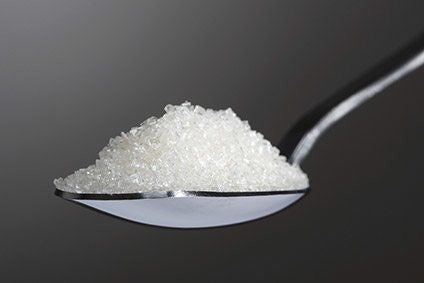
A report intended to inform the UK government’s planned National Food Strategy has called for a sugar and salt tax.
It also suggests fruit and vegetables should be prescribed by the National Health Service (NHS).

Discover B2B Marketing That Performs
Combine business intelligence and editorial excellence to reach engaged professionals across 36 leading media platforms.
Published today (15 July), the hard-hitting report – part two of a series of recommendations – was authored by Henry Dimbleby, founder of the Leon food chain.
It sets out how diets will need to change over the next ten years in order to meet the UK government’s existing targets on health, climate and nature. By 2032, fruit and vegetable consumption will have to increase by 30% and fibre consumption by 50%, while consumption of food high in saturated fats, salt and sugar will have to go down by 25% and meat consumption should reduce by 30%.
The report says historic reform to the country’s food system is needed to protect the NHS, improve the health of the nation and save the environment.
It says the coronavirus pandemic is a “painful reality check” that is an opportunity to transform the UK’s food system to save lives.

US Tariffs are shifting - will you react or anticipate?
Don’t let policy changes catch you off guard. Stay proactive with real-time data and expert analysis.
By GlobalDataThe report says poor diet contributes to an estimated 64,000 deaths every year in England.
In one of the report’s most radical recommendations, its author is calling for the introduction of a sugar and salt reformulation tax, with some of the money being used to expand free school meals and support the diets of those living in the most deprived neighbourhoods, partly through the hand-out of free fruit and vegetables.
Dimbleby also warns eating habits are destroying the environment, which in turn threatens our food security. The food we eat accounts for around a quarter of greenhouse gas emissions, and is the leading cause of biodiversity destruction, his report says.
The report was commissioned by the UK government in 2019. The first part, published this time last year, called for the retention of core standards in relation to food imports resulting from future trade deals.
In his wide-ranging second report, Dimbleby repeated that call and also suggested food education should be central to the national curriculum.
Dimbleby also recommends measures to restore and protect our natural environment, by investing in sustainable farming techniques and new food technologies such as “novel proteins”.
He said: “With the right leadership from government, it is well within our power to change the [food] system so it makes both us and the planet healthier.
“Currently, however, the way we produce food is doing terrible damage to the environment and to our bodies and putting an intolerable strain on the NHS.
“Covid-19 has been a painful reality check. Our high obesity rate has been a major factor in the UK’s tragically high death rate. We must now seize the moment to build a better food system for our children and grandchildren.”
The Government said it will respond with a White Paper – the first stage towards the introduction of a new law – within six months. Responding to the report, Environment Secretary George Eustice said it “will carefully consider its conclusions”.
Inevitably, Dimbleby’s report has attracted both support and criticism.
In the former camp is the pressure group Action on Salt. Its chairman Graham MacGregor said: “If ever there was an opportunity to finally transform our food system to save lives this is it, especially the call for a landmark salt reformulation tax which will make the UK the first country in the world to have a mandatory salt levy.”
He added: “Previous attempts by the government to encourage voluntary reformulation have failed, which is why more fiscal measures are urgently needed to address the country’s shocking health inequalities.”
But Kate Halliwell, chief scientific officer at UK industry body The Food and Drink Federation, suggested such a tax would not have its intended effect. She said: “A salt and sugar tax will ultimately impact those families who are already struggling to make ends meet, by making food and drink more expensive.
“After many years of cost pressures, businesses in our sector are already operating on very tight margins, and any further costs would simply have to be passed on to the consumer in the form of higher food prices.
“These taxes will not drive reformulation. Food and drink manufacturers have been voluntarily lowering fat, salt and sugars in recipes for decades as well as reducing portion size, but it takes time to change much-loved products.”
She added: “It is hard to view the proposals that the taxes raised will pay for additional health plans, with anything but scepticism. The same promise was made ahead of the introduction of the soft drinks industry levy, but was quietly dropped shortly afterwards.”
Richard Harrow, chief executive of The British Frozen Food Federation, shares some of Halliwell’s concerns, saying he is concerned that the introduction of a salt tax “threatens to put increased pressure on food businesses which are already struggling to get back on their feet after lockdown”.
He added: “Many are dealing with crippling staff shortages and the costs of reformulation are a burden many are simply unable to shoulder. We are already world leaders in salt reduction and there are many examples around the world that show taxing food does little to change consumers buying habits.”





